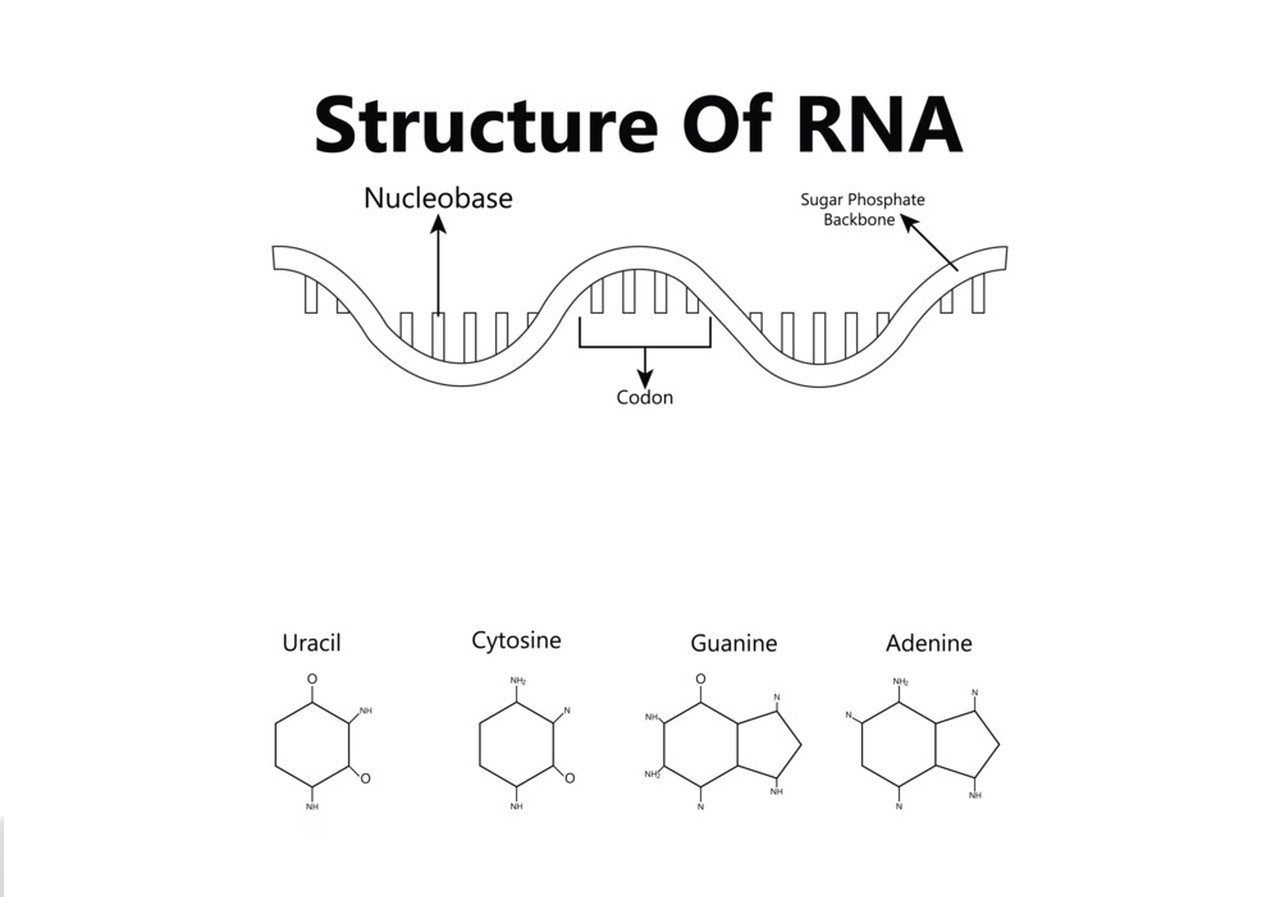Ribonucleic Acid (RNA) is a molecule that plays a crucial role in various biological processes and has a range of potential benefits in both scientific and medical contexts. Here are some of the potential benefits of Ribonucleic Acid:
Protein Synthesis: Ribonucleic Acid is essential for protein synthesis. It serves as a template for translating genetic information from DNA into proteins. Understanding RNA’s role in this process is fundamental to advancing our knowledge of genetics and molecular biology.
Gene Expression Regulation: Various types of Ribonucleic acid, such as microRNA (miRNA) and small interfering RNA (siRNA), play key roles in gene regulation. They can silence or inhibit the expression of specific genes, which has implications for controlling disease and managing genetic disorders.

Genetic Engineering: RNA has been used in genetic engineering and gene therapy to introduce or modify genes in an organism. Ribonucleic Acid interference (RNAi) and CRISPR/Cas9 technologies leverage Ribonucleic acid to manipulate gene expression, potentially providing treatments for genetic diseases.
Vaccines: Several COVID-19 vaccines, including the Pfizer-BioNTech and Moderna vaccines, use messenger RNA (mRNA) to instruct cells to produce a viral spike protein and stimulate an immune response. This approach has shown promise in rapidly developing vaccines for emerging diseases.
Ribonucleic Acid Therapeutics: RNA-based therapeutics, such as antisense oligonucleotides and small interfering RNA, are being developed to treat various diseases, including genetic disorders, cancer, and viral infections. These therapies aim to target specific genes or gene products.
Diagnostics: RNA-based tests, such as reverse transcription polymerase chain reaction (RT-PCR), are used to detect and diagnose diseases like COVID-19, HIV, and genetic disorders. These tests are vital for medical diagnosis and monitoring.
Ribonucleic Acid Research: Ribonucleic Acid serves as a crucial tool for studying various biological processes, including transcription, translation, and post-transcriptional modifications. Research involving RNA has expanded our understanding of how cells function and communicate.
Evolutionary Insights: Studying Ribonucleic acid can provide insights into the early evolution of life on Earth. The Ribonucleic acid world hypothesis suggests that Ribonucleic acid may have been the precursor to DNA and played a central role in the origin of life.

Environmental Monitoring: RNA-based techniques, such as metatranscriptomics, can be used to study the diversity and activity of microorganisms in environmental samples. This has applications in environmental monitoring and biotechnology.
Agriculture: Ribonucleic Acid interference technology can be applied to develop genetically modified crops with improved traits, such as resistance to pests or diseases. This can contribute to food security and sustainable agriculture.
Drug Discovery: Ribonucleic Acid is a target for drug development, particularly in the context of diseases with Ribonucleic acid molecules that play a pathogenic role, such as certain viral infections and neurodegenerative disorders.
Overall, the potential benefits of Ribonucleic acid are diverse and extend to various fields, including medicine, genetics, biotechnology, and basic scientific research. Ongoing research and advancements in Ribonucleic acid technology continue to uncover new applications and therapeutic possibilities.
